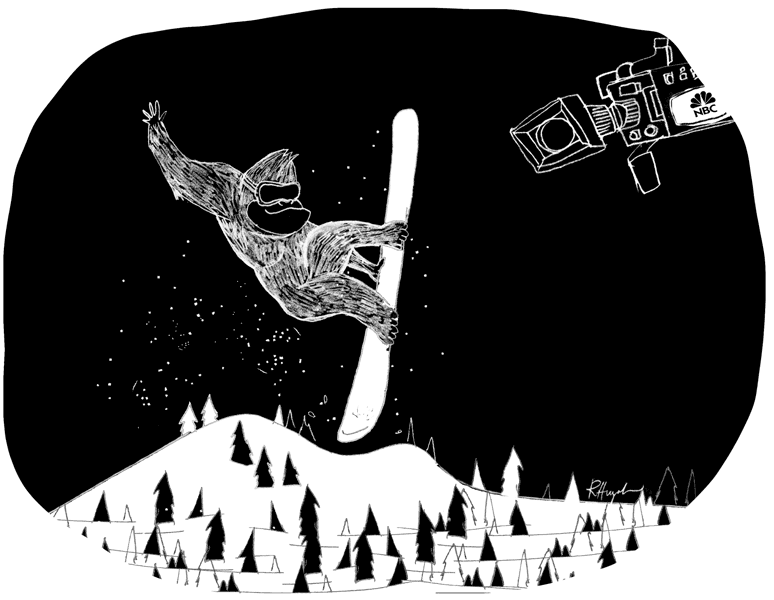Television: The one-million pound sporting gorilla
The influence of television in sport
Sports and television are like an old married couple. Early on in their relationship they were dependent on each other and lived together in harmony and ran through fields of roses (well, maybe not the last part).
However, the relationship between sports and television, namely in the past 20 years, has been more one-sided as television has wielded its big knife in terms of what can be shown, and at what time.
The first case is the X-Games, or the extreme sports (now called “action sports” in many media outlets) version of the Olympic games. These events feature sports like motocross and skateboarding. What many people do not know is that there is no governing body of any extreme sport that created the event. It was actually ESPN, the United States’ version of TSN.
In the early ‘90s, executives at ESPN were looking to maximize their market share of the 18 to 34-years-old age group. To get people in this age group that were not watching normal sports, they created the “Extreme” Games in the summer of 1995, which was held on Rhode Island.
The first event featured sports like downhill mountain biking, street luge and aggressive in-line skating. According to Time.com, ESPN pumped $10 million into the first event. It was such a huge gamble and a huge success for ESPN, that the network spun off a Winter X Games in 1997 that featured events like snow mountain biking and snowboarding.
The popularity of the X-Games, thanks to ESPN, was the catalyst for such extreme sports like snowboarding and BMX racing which were included in the 1998 winter and 2008 summer Olympics, respectively.
There is also the gorilla known as NBC and its meddling in the Olympics. NBC has been known for trying to get the International Olympic Committee to include “edgier” sports into the Olympic games.
“One of the most important lessons to be learned from Sydney was that we had to get back a fair share of the lost 18 to 34-year-olds,” said NBC sports executive Dick Ebersol Time.com.
NBC had lost the market share of that age group in the 2000 Sydney Olympics, the same market that extreme sports were geared to.
At the 2002 Winter Olympics, NBC saw a 31 per cent increase amongst this demographic, compared to the 1998 Winter Olympics.
This was due to the marketing of snowboarding in the Olympics. NBC also did well with the 2008 Beijing Olympics, consistently ranking number one amongst all age groups, including the 18 to 34-year-olds.
This is perhaps a mere sign of things to come, as according to SportsBusinessDaily.com, sports and properties C.E.O. Hill Carrow said: “If NBC continues long term as the games broadcaster in the U.S., the IOC [International Olympic Committee] will pay even more heed to NBC’s recommendations and request.”
Published in Volume 63, Number 19 of The Uniter (February 5, 2009)







